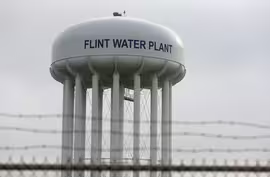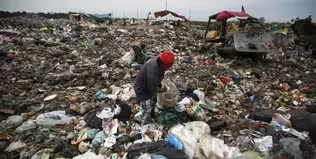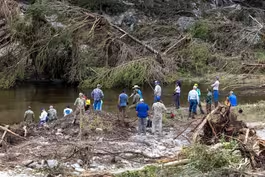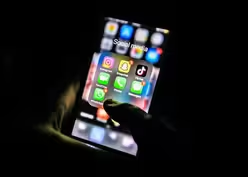
July 20, 2025 - PBS News Weekend full episode
7/20/2025 | 26m 44sVideo has Closed Captions
July 20, 2025 - PBS News Weekend full episode
July 20, 2025 - PBS News Weekend full episode
Problems playing video? | Closed Captioning Feedback
Problems playing video? | Closed Captioning Feedback
Major corporate funding for the PBS News Hour is provided by BDO, BNSF, Consumer Cellular, American Cruise Lines, and Raymond James. Funding for the PBS NewsHour Weekend is provided by...

July 20, 2025 - PBS News Weekend full episode
7/20/2025 | 26m 44sVideo has Closed Captions
July 20, 2025 - PBS News Weekend full episode
Problems playing video? | Closed Captioning Feedback
How to Watch PBS News Hour
PBS News Hour is available to stream on pbs.org and the free PBS App, available on iPhone, Apple TV, Android TV, Android smartphones, Amazon Fire TV, Amazon Fire Tablet, Roku, Samsung Smart TV, and Vizio.
Providing Support for PBS.org
Learn Moreabout PBS online sponsorshipJOHN YANG: Tonight on PBS News Weekend, the Israeli military issues a new evacuation order for central Gaza as more than 80 Palestinians are killed trying to get desperately needed food aid.
Then, the United States produces more plastic waste than any other country.
But now a major destination for a lot of that trash is saying no more.
And as millions of Americans turn to social media for support, the growing concerns about mental health misinformation.
WOMAN: Think about it like you would your physical health.
Would you take advice and start taking medication from somebody on TikTok that had no qualifications to prescribe medication?
Are you really need to think about your mental health the same way?
(BREAK) JOHN YANG: Good evening.
I'm John Yang.
There are signs tonight that Israel is preparing to expand ground operations into an area of central Gaza that's been a relatively safe refuge for displaced Palestinians and humanitarian aid groups.
The Israeli military issued evacuation orders for an area around Deir al-Balah where forces have largely refrained from operating for fear of endangering hostages still held by Hamas.
The orders came as at least 85 more Palestinians were said to have died while trying to get to food aid distribution sites.
The largest toll was in northern Gaza, where people were approaching U.N. aid trucks entering from Israel at the Zikim crossing.
MOHYI AL-ZAYTOUNA, Eyewitness (through translator): We were just going to get food to bring for our children.
We were not going to beg or fight.
We just wanted to eat.
JOHN YANG: Many Palestinians say they have to choose between risking being killed trying to get food or going without.
The U.N. has said that in recent weeks, nearly 900 people had died trying to get aid, mostly near sites run by the private U.S. and Israeli backed Gaza Humanitarian Foundation.
Sudarsan Raghavan is the Wall Street Journal's senior Middle East correspondent.
Sudarsan, we just heard a Palestinian in that introduction talk about what he faced as he tried to get food aid.
I know that you've done some reporting and you have other stories of other personal stories.
What, what can you tell us?
SUDARSAN RAGHAVAN, Wall Street Journal: It's really a Sophie's Choice for most Gazans.
It's a daily stark choice between starvation and then risking death to go through combat zones in order to go to a handful of food distribution points in Gaza.
We spoke with several individuals who faced this choice and it was extremely sad.
We spoke to one woman who had originally was getting food aid from one of the soup kitchens that are still open.
And one day she goes there and she carries her bucket to get the soup and the soup fell on her body, scalding her arms.
When she went back, her son told her never to go again to the soup kitchen.
The very next day, he goes to one of these food disputes centers run by the Gaza Humanitarian Foundation and he was shot dead while he was approaching the site.
There are countless stories like this, John, happening daily today.
JOHN YANG: Why is it so perilous to get to these food distribution sites?
SUDARSAN RAGHAVAN: Well, Since May, about 408 points have basically been erased and replaced by 4 points, most of them in southern Gaza and one in the middle.
These are being run by the Gaza Humanitarian Foundation and it has led to thousands and thousands of Gazans, mostly young men, approaching these sites nearly on a nearly daily basis.
And there's a whole crush of people and they have to go often through combat zones, also no-go zones.
There's one site in central Gaza.
People have to cross the Netsarene Corps corridor, which is an Israeli militarized site, which is usually a no go zone for Palestinians.
So when they get to these areas, there's a whole crush of people, thousands, and that has led to people, many people, getting killed.
The Israeli forces say that they fire warning shots and they are worried about suspicious people approaching them and hence they fire these shots.
And the Palestinians say that those shots are coming incredibly close to them.
People have described to us crawling on the ground to get to these sites as bullets are whizzing over their heads.
So that really is the issue here, is that there's just too many people coming into these sites and it's led to utter chaos.
JOHN YANG: Why the change?
Why go from the hundreds of sites you were talking about down to four?
SUDARSAN RAGHAVAN: Well, the Israelis and the Americans have long blamed Hamas, the militant group that runs Gaza, as benefiting from these distribution, food distribution systems.
They accuse Hamas of stealing the aid and hence prolonging the conflict, the war.
Hamas, of course, denies this, but that's the single main reason why there was this decision made, ostensible decision, reason for why it was made to cut down these sites.
Now humanitarian agencies have also accused Israel and the United States of basically creating smaller areas to push the Gazan population towards the south, forcing them to go get food, mostly in the southern areas, which will at some point shrink their area of living.
And that's what humanitarians accuse the Israelis of seeking to do, making it so intolerable for Gazans that as Israelis hope, as some Israelis hope, that they will leave Gaza on their own.
JOHN YANG: In addition to just that crush of humanity you were describing, the Israeli military also says they're armed gangs that are sometimes responsible for these deaths.
Is there any, what do you make of that?
SUDARSAN RAGHAVAN: Look, there are many different actors who are in these -- coming to these food distribution sites.
There are also certainly armed thieves because these food packages that are being handed out are often valuable and resold on in the markets.
So there are definitely armed gangs that the ordinary Gazans have to wade through in order to get these food packages.
There's been gangs who've done some shootings as well.
So, yeah, there, I mean, it's a situation where you have pretty much all sides trying to get a hold of something that has become incredibly valuable, these food packages.
JOHN YANG: Sudarsan Raghavan of the Wall Street Journal, thank you very much.
SUDARSAN RAGHAVAN: Thank you.
Great to be with you.
JOHN YANG: In tonight's other news, the number of people missing after this month's deadly flash floods in Texas has dropped significantly.
Kerr county officials say only three people remain unaccounted for from the July 4 floods in the Texas hill country.
That's down from nearly 100.
Officials say many of those who had been reported missing have since been accounted for.
The flash floods killed at least 135 people, most of them in Kerr County.
The driver of that car that plowed into a crowd of people outside a Los Angeles nightclub this weekend has been charged with assault with a deadly weapon.
PBS News has learned the suspect is 29-year-old Fernando Ramirez.
Police say he had been kicked out of the club, got into his car and minutes later drove into the crowd, injuring dozens.
After the car came to a stop, bystanders dragged him out of the vehicle and beat him and someone in the crowd shot him.
That person remains at large.
Overseas now to the war in Ukraine, where Russia has responded to increasing pressure to begin ceasefire talks.
In comments to state run media, a Kremlin spokesman said Russian President Vladimir Putin is open to peace with Ukraine, but only after his objectives have been achieved.
Even as Russia continue to batter Ukraine this weekend with drone attacks, Ukrainian President Volodymyr Zelenskyy proposed a new round of peace talks for this week.
On Monday, President Trump threatened Russia with steep tariffs unless a peace deal is reached by early September.
And the best players of the WNBA sent a loud message to the league without ever saying a word.
All the players in Saturday's All Star Game took the floor for warm up, wearing shirts that read, pay us what you owe us.
The players union and the league remained far apart in negotiations on a new collective bargaining agreement.
The league is taking in record revenue and the players want what they see as their fair share of that in better pay and benefits.
The current agreement expires in October after the season ends.
Still to come on PBS News Weekend, a milestone in Flint, Michigan, as thousands of lead pipes are finally removed and the troubling rise of mental health misinformation on social media.
(BREAK) JOHN YANG: It's been more than a decade since the alarm was sounded about high levels of lead in Flint, Michigan's tap water.
This month the city said it had completed the work of replacing as many as 11,000 lead pipes as mandated by a 2017 court approved settlement.
But lead lines still remain in Flint and in states across the country.
Ali Rogin spoke with Erik Olson of the Natural Resources Defense Council, which was one of the driving forces behind the settlement.
ALI ROGIN: Thank you for being here.
How do we know that the city of Flint has Indeed replaced all 11,000 of these pipes that they said they would as a result of that 2017 settlement?
ERIK OLSON, Natural Resources Defense Council: Well, we've had to go back to court now six times and constantly been tracking to see if the city was actually following through on this settlement agreement.
Finally, the court actually held the city in contempt and the state took over most of the finishing up of this project.
So we believe that the vast majority of the pipes have been pulled out and most of the restorations have been done.
But there still are some pipes, but we do think they're mostly done.
And this is just a really big milestone in protecting the citizens of Flint.
ALI ROGIN: And to that end, major milestones certainly.
But as you mentioned, there are still more pipes that are down there and there's still a lot of deep distrust among the residents of Flint.
I want to play for you a sound bite from Flint resident and water activist Melissa Mayes talking about those dangerous pipes that are still in the ground in Flint.
MELISSA MAYS, Flint Resident: We just celebrated the end of a 10-year process of getting the lead service lines out of the ground.
And then a few days later we found out that the City had uncovered 3,200 addresses they had skipped previously.
So now we know that there's still lead in the ground.
We are all still using bottled water to brush our teeth, to drink, to cook with, to give our pets, because we've had too many pets die.
ALI ROGIN: How were those additional pipes missed?
ERIK OLSON: It's a very good question how the city was unable to identify those locations.
So that's something certainly we're going to be following up on.
Obviously, the vast majority of the pipes were replaced, but the fact that there are literally a few thousand, the addresses were overlooked somehow gives us real concern.
So we're certainly celebrating the people power that created this settlement, but obviously there's still some work to be done.
ALI ROGIN: It took more than a decade for this to happen, and yet in many cities, there are still lots of lead pipes carrying water to people's homes.
How widespread is this problem?
ERIK OLSON: Unfortunately, a lot of people think that this problem was limited to Flint and maybe a few other big cities in the Northeast.
But we did a survey, and now EPA is done an evaluation.
It looks like there are about 9 million of these lead pipes.
They're in all 50 states.
They serve tens of millions of people with their water.
It's basically like drinking out of a lead straw.
So the last administration took the initiative and said, we're going to get rid of all these lead pipes across the country in 10 years.
And we're now awaiting whether the current Trump administration is going to honor that commitment and pull out all those lead pipes in 10 years.
ALI ROGIN: How concerned are you that the Trump administration may not uphold this requirement that the Biden administration put in place?
ERIK OLSON: We're very concerned that the Trump administration may try to pull back on this commitment.
It's something that they haven't yet really said anything publicly about what their plans are.
The bad news is that they pulled back on some of the other drinking water standards, like the standards forever toxic chemicals that they've announced they're going to repeal some of those standards.
We're hoping that they decide that lead is something that nobody wants in their drinking water and they're going to let the commitment stand to pull out those lead pipes in the next decade.
But wait and see.
ALI ROGIN: And we know that children in Flint were some of the most deeply affected.
What's your understanding of how the children of Flint, Michigan, who really bore the brunt of this crisis, how are they doing now?
That entire generation of children, a lot.
ERIK OLSON: Of kids were hungry, harmed by the excessive levels of lead in their drinking water.
It can harm development of their brains.
It can have lifelong impacts.
So, there are some special resources that have been made available to kids in Flint to help them do as much recovery as possible.
Special education assistance.
Michigan State University has a pediatric unit that is helping kids there.
But there's still a lot of work to do for the children there.
And a lot of people don't realize this, but lead also can be quite dangerous for adults.
It actually can cause problems of heart disease and even fatal heart attacks, which is why it's super important to get rid of these lead pipes, certainly for the children, but adults are affected too.
ALI ROGIN: That's a really good point.
Erik Olson with the Natural Resources Defense Council, thank you so much for joining us.
ERIK OLSON: Thanks so much for having me.
JOHN YANG: The United States produces more plastic waste than any other country in the world.
Hundreds of tons person.
About 90 percent of it ends up in landfills, is burned or shipped overseas.
Last year, more than 35,000 tons of it was shipped to Malaysia.
Malaysia received more discarded plastic from rich nations than any other developing country.
But last month, Malaysian leaders effectively banned future shipments.
Anja Brandon is director of Plastics Policy for the Ocean Conservancy.
Anya, why are these rich nations like the United States shipping plastic waste to countries like Malaysia?
ANJA BRANDON, Ocean Conservancy: Yeah, it's a great question.
Honestly, there's two big factors.
One, we are simply making too much waste here at home to handle ourselves.
You already said we are the number one generator of plastic waste worldwide.
The average American generates something like 200 pounds of plastic waste each and every year.
And the second big reason is it is just cheaper to send it overseas than trying to deal with it here ourselves.
This sort of has led to our out of sight, out of mind approach, which is becoming painfully clear now that these other countries are no longer accepting our waste.
JOHN YANG: And what were these countries or what are these countries doing with all of this?
ANJA BRANDON: Well, they try to recover and recycle what they can, but we know the sheer volume of what we are sending there and what other countries are sending there can make that all but impossible.
Which means That a lot of this waste ends up landfilled, illegally dumped, burned, or unfortunately ending up getting out into the environment and ultimately into our ocean.
JOHN YANG: And is that essentially why Malaysia is saying no more?
ANJA BRANDON: Exactly.
Malaysia is joining a whole host of other countries that really started with China a few years ago, standing up to the United States and other countries and saying no more.
We do not want to keep being your dumping ground and accepting your waste and really holding the United States accountable for our own pollution.
JOHN YANG: Some people will say that this is a problem of what to do with the waste.
But isn't the real problem generating the waste?
ANJA BRANDON: It's both.
Right.
We absolutely need to make less waste, which really starts with making less plastics in the first place.
And the second is what we do with it.
There's this saying that all waste is local, which really means how you manage your waste should be local.
That's how we get to those closed circular systems where things don't end up out in our environment.
And really it's our local governments and our state governments right now that are quite literally left holding the bags of trash and recycling that we can no longer send overseas.
So it's those local and state governments that are really stepping up to take this issue head on.
Whether that's by passing policies to require less plastics or to, you know, hold plastic producers accountable for helping fund this new recycling and waste management program that we need.
JOHN YANG: Obviously at the Ocean Conservancy, you spend a lot of time looking at the effect of this on plastic waste in the oceans.
Tell us how big that problem is and how much the United States contributes to it.
ANJA BRANDON: Yeah, I mean, I think we all know that plastics in the ocean are a big problem, but it's hard to just wrap our minds around truly how big of an issue this is.
Each and every year, 11 million metric tons of plastics enter our ocean from land based sources alone.
That's over a garbage truck's worth of plastic entering our ocean every single minute.
That's plastic that ends up in our ocean smothering corals, entangling birds and being ingested by whales.
There's really no place in our ocean that has been left untouched by plastic pollution.
And that's not only bad news for the ocean, that's bad news for us.
We rely on a healthy ocean.
We're dependent on it.
Our ocean is responsible for every other breath we take.
Seafood we eat, places we go and play and enjoy.
If our ocean is struggling, we are going to struggle too.
JOHN YANG: Anja Brandon d of the Ocean Conservancy, thank you very much.
ANJA BRANDON: Thank you.
JOHN YANG: In recent years, people have become more comfortable sharing their personal experiences with mental health, a sign that the stigma surrounding it is diminishing.
On Instagram and TikTok combined, there are nearly 90 million posts with the hashtag mental health.
And terms like gaslighting, trauma and toxic relationships are now part of everyday conversation.
But not all the information online is accurate.
Stephanie Sy spoke with Taisha Caldwell-Harvey, a psychologist and founder of the private practice the black girl.
STEPHANIE SY: Dr. Taisha, how do you see social media contributing to misinformation about mental health?
TAISHA CALDWELL-HARVEY, Founder and CEO, The Black Girl Doctor: Yes, there's so much we're seeing, really anybody right now can say anything that they want to on the internet and about any topic.
And while in a way that can be really good, it also means that, you know, the rate at which something spreads like wildfire has nothing to do with how accurate the information is.
And right now we're seeing so many creators and people just sharing their experiences online, but equating their experience to a reality for others and to fact and it's just not really, it's not really true.
STEPHANIE SY: To what extent do you think social media, the misinformation, the self-diagnoses, leads to people sort of pathologizing what might be considered of more normal emotions and stress responses that we all have and what are the potential risks of doing that?
TAISHA CALDWELL-HARVEY: Yeah, I think one of the huge dangers really is invalidating or downplaying mental illness by equating it to symptoms of a diagnosis.
And so we can all experience anxiety, we can all experience sadness, periods of high distractibility, but that doesn't mean that we have, you have anxiety disorder, it doesn't mean that you have depression, it doesn't mean that you're neurodivergent and it doesn't mean that you have PTSD.
And using language in that way can be extremely harmful.
To someone who has these diagnoses because it can make them question themselves and it also can make society more critical and less supportive.
STEPHANIE SY: What do you think is driving this?
And in some ways is having an ADHD or an autism self-diagnosis becoming sort of a form of identity?
TAISHA CALDWELL-HARVEY: I think people look for community, right.
When you're experiencing something and you want to give it language, social media can be a great place to search that term or to search and experience and just start finding other people and you know that you're not alone, which is really powerful and oftentimes can be the first step that people take before they get help.
And that's one of the reasons why I love that more people are talking about this.
Psychologists for years have been trying to get people to get help instead of sit in suffering.
And so now there's this cultural shift with younger millennials.
Gen Z, I feel like is leading the charge and people are hungry for language to express themselves.
They want to talk about how they're feeling and they want to rid themselves of the shame and stigma and want to just live out loud and be like I can have a full human experience.
And I think that part is extremely beautiful.
STEPHANIE SY: And yet it seems maybe to be an overcorrection is what you're saying.
So what would you say, what advice would you give to sort of rein this back into a place where one can identify when they need to see a real therapist?
TAISHA CALDWELL-HARVEY: Yeah, yeah.
Well, one never self-diagnose on TikTok.
And I think definitely when you have a cultural shift, you often get this pendulum swing.
Right.
And I think we have kind of swung really far one direction and I'm hoping we will settle back out somewhere in the middle.
We know from research that 50 percent of all adults will experience a mental illness in their lifetime.
And so if you're going to have people online talking about their whole life bold and loud, they then we're going to have content around how we navigate and navigate our mental health and how we deal with mental illness.
And so I don't think it's wrong, but I think we really need to separate what is.
I'm sharing my experience and somebody receiving it that way versus your experience as an individual person is so important that it deserves to be the center point of what this symptom is, right?
And I think for people really needing to be careful of what you absorb and in terms of who you take advice from, think about it like you would your physical health.
Would you take advice and start taking medication from somebody on TikTok that had no qualifications to prescribe medication?
You really need to think about your mental health the same way.
It's okay to listen to people's experiences, but it really need to stop when it comes to now I'm going to do what they did.
STEPHANIE SY: That is Taisha Caldwell-Harvey, founder and CEO of the Black Girl.
Doctor, thank you so much for joining us.
TAISHA CALDWELL-HARVEY: Thank you so much for having me.
JOHN YANG: And that is PBS News Weekend for this Sunday.
I'm John Yang.
For all of my colleagues, thanks for joining us.
Have a good week.
Flint removes thousands of lead pipes, but problems remain
Video has Closed Captions
Clip: 7/20/2025 | 5m 21s | Flint removes thousands of lead pipes in major milestone, but these problems remain (5m 21s)
Malaysia stops accepting plastic waste from rich nations
Video has Closed Captions
Clip: 7/20/2025 | 4m 27s | Malaysia stops accepting plastic waste from the U.S. and other rich nations (4m 27s)
News Wrap: Number of missing from Texas floods drops to 3
Video has Closed Captions
Clip: 7/20/2025 | 2m 26s | News Wrap: Number of missing from Texas floods drops to 3 people (2m 26s)
Palestinians describe risking death to get food aid in Gaza
Video has Closed Captions
Clip: 7/20/2025 | 6m 23s | Palestinians describe choice between starvation and risking death to get food aid in Gaza (6m 23s)
What to know about mental health misinformation online
Video has Closed Captions
Clip: 7/20/2025 | 4m 51s | What to know about the rise of mental health misinformation on social media (4m 51s)
Providing Support for PBS.org
Learn Moreabout PBS online sponsorshipSupport for PBS provided by:
Major corporate funding for the PBS News Hour is provided by BDO, BNSF, Consumer Cellular, American Cruise Lines, and Raymond James. Funding for the PBS NewsHour Weekend is provided by...
















